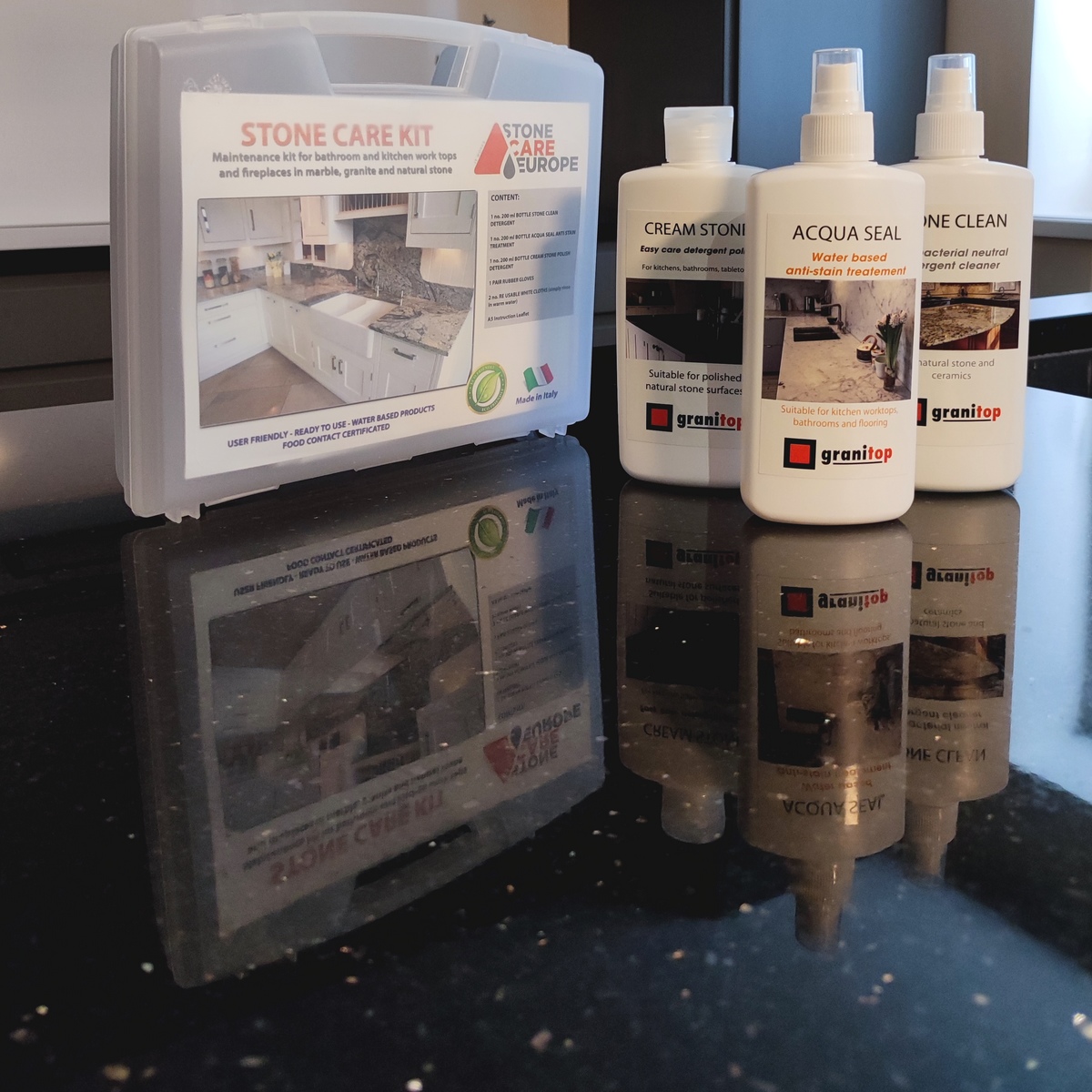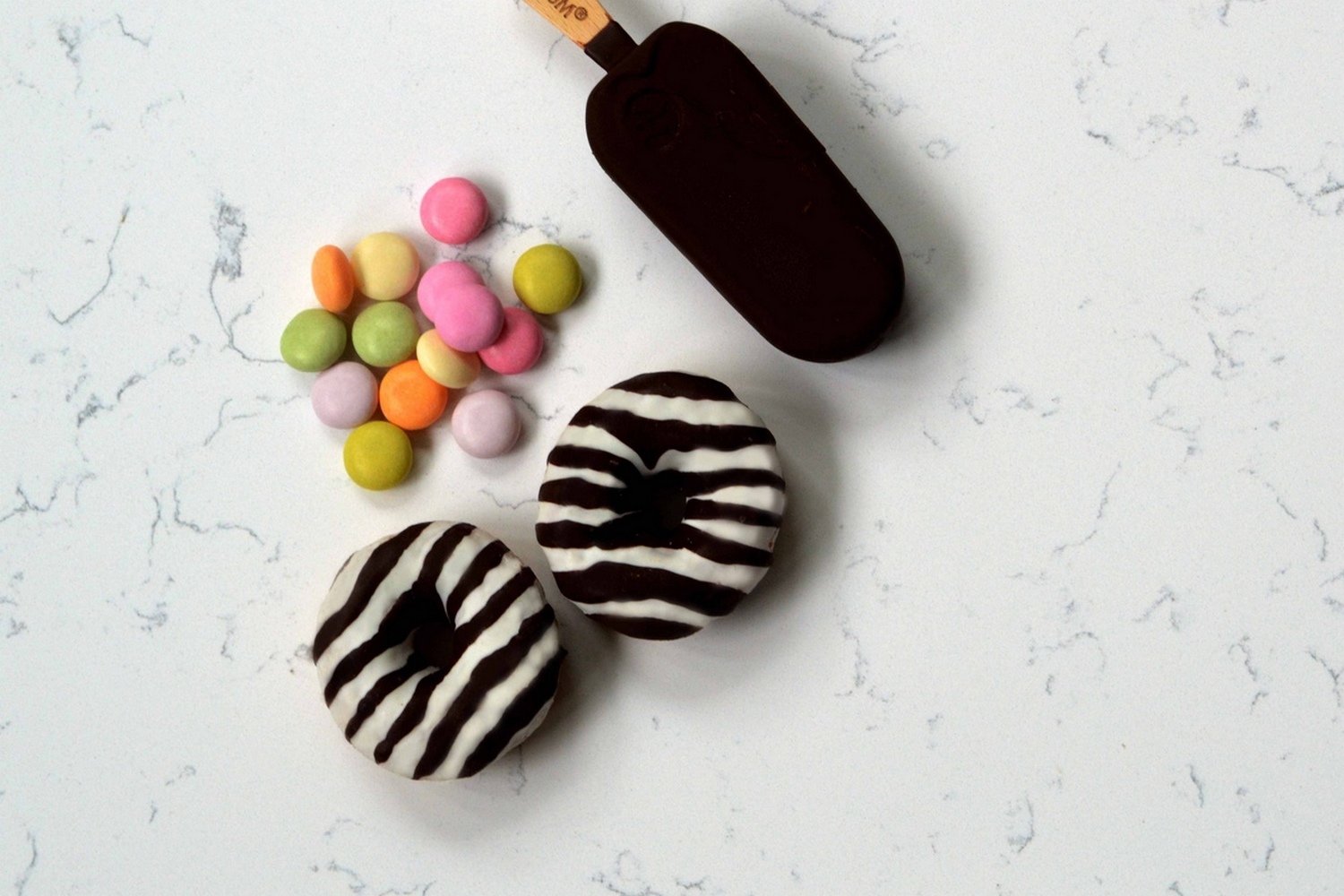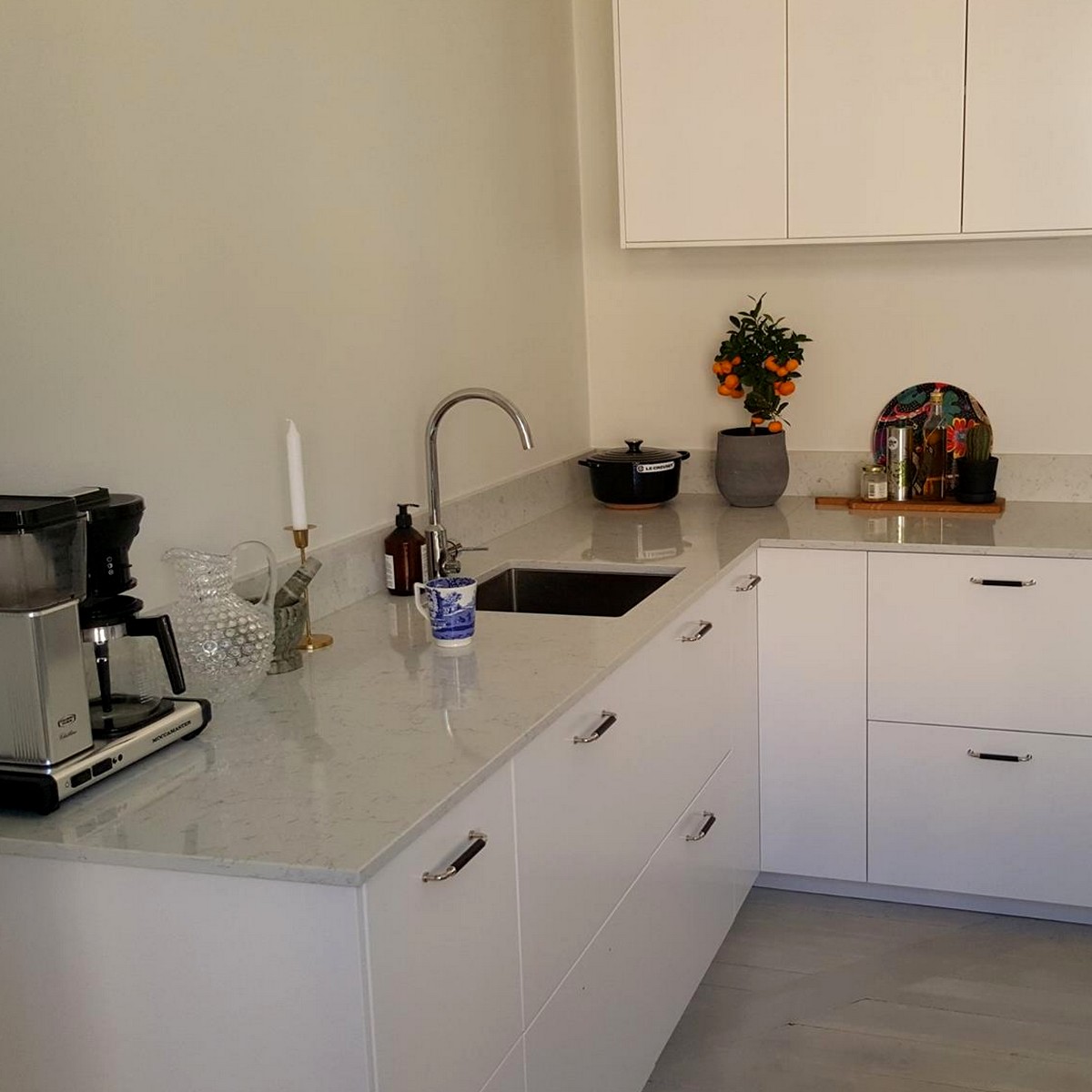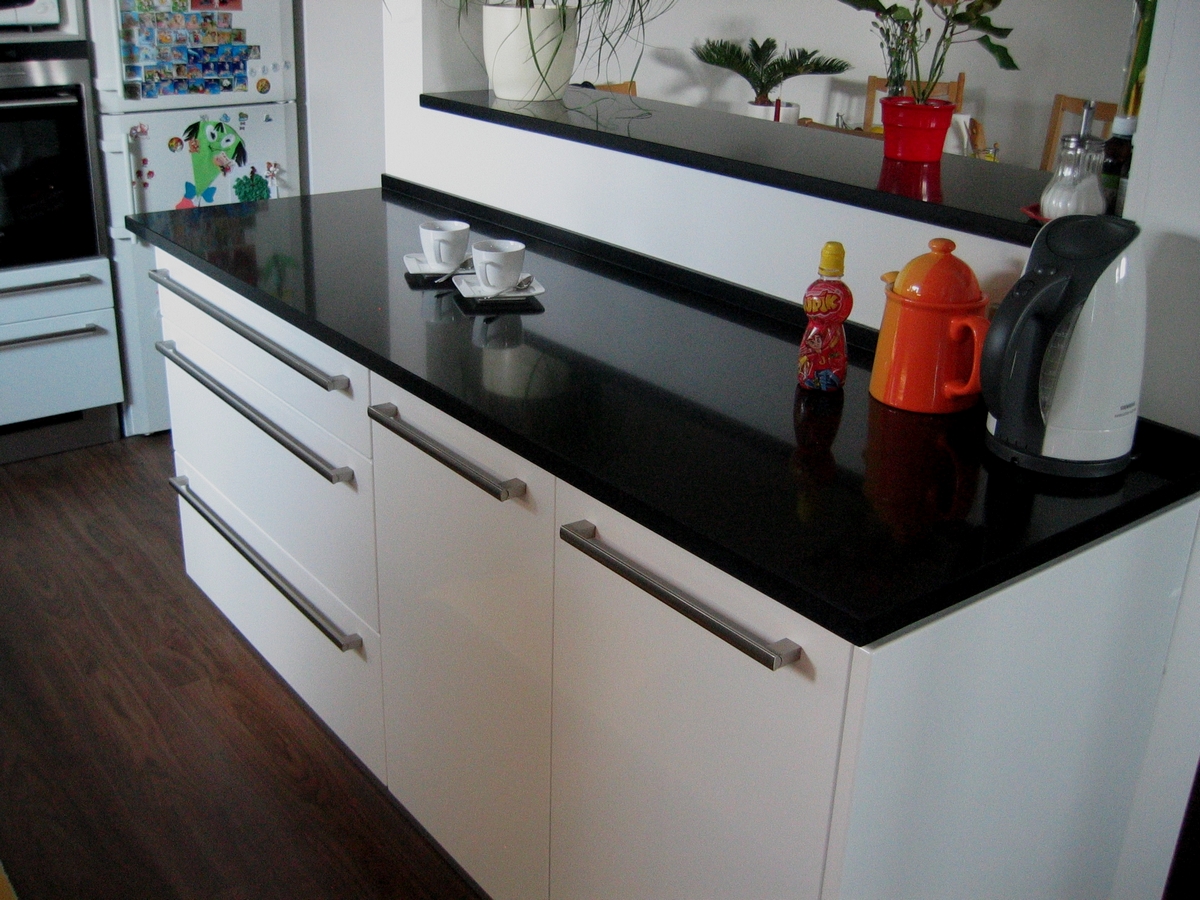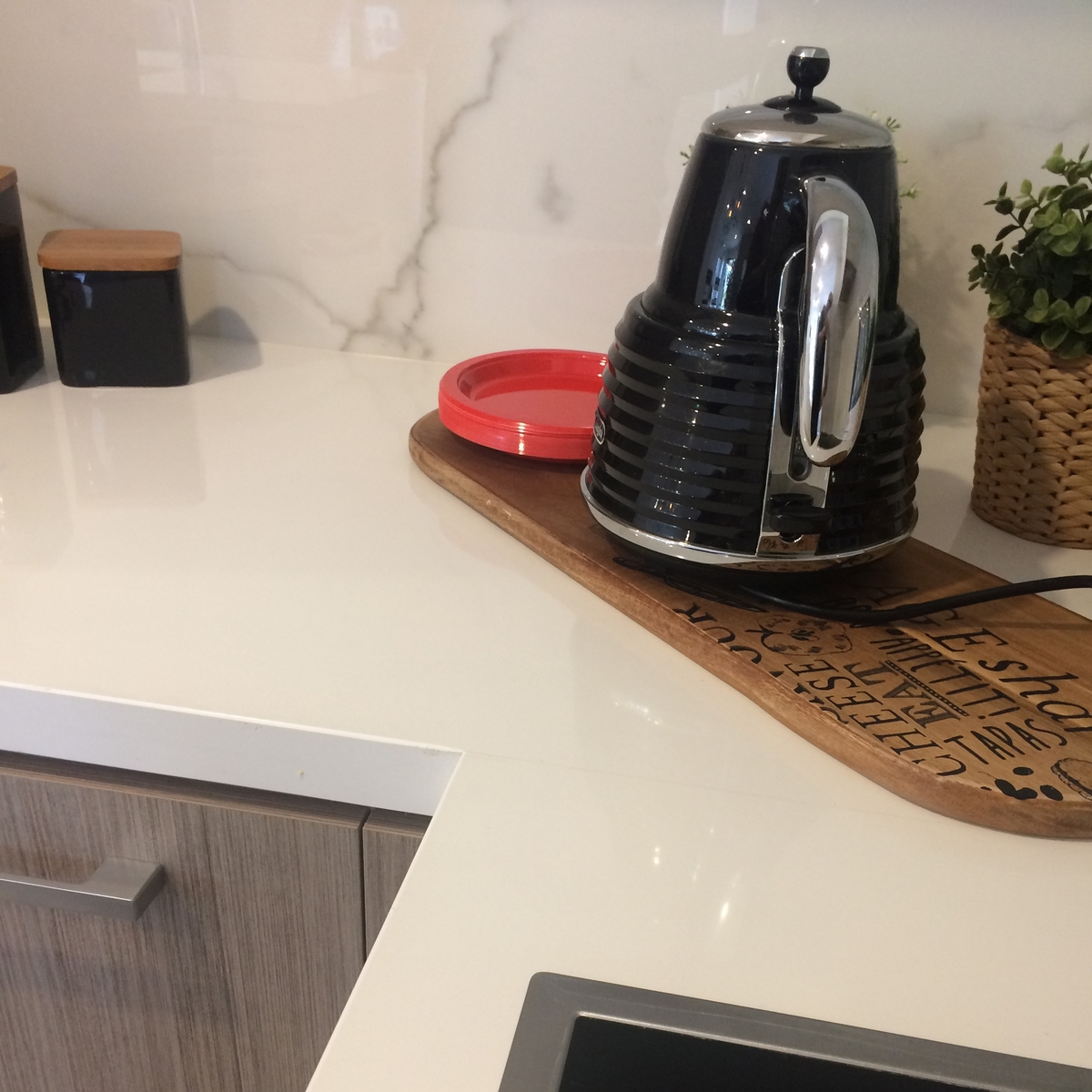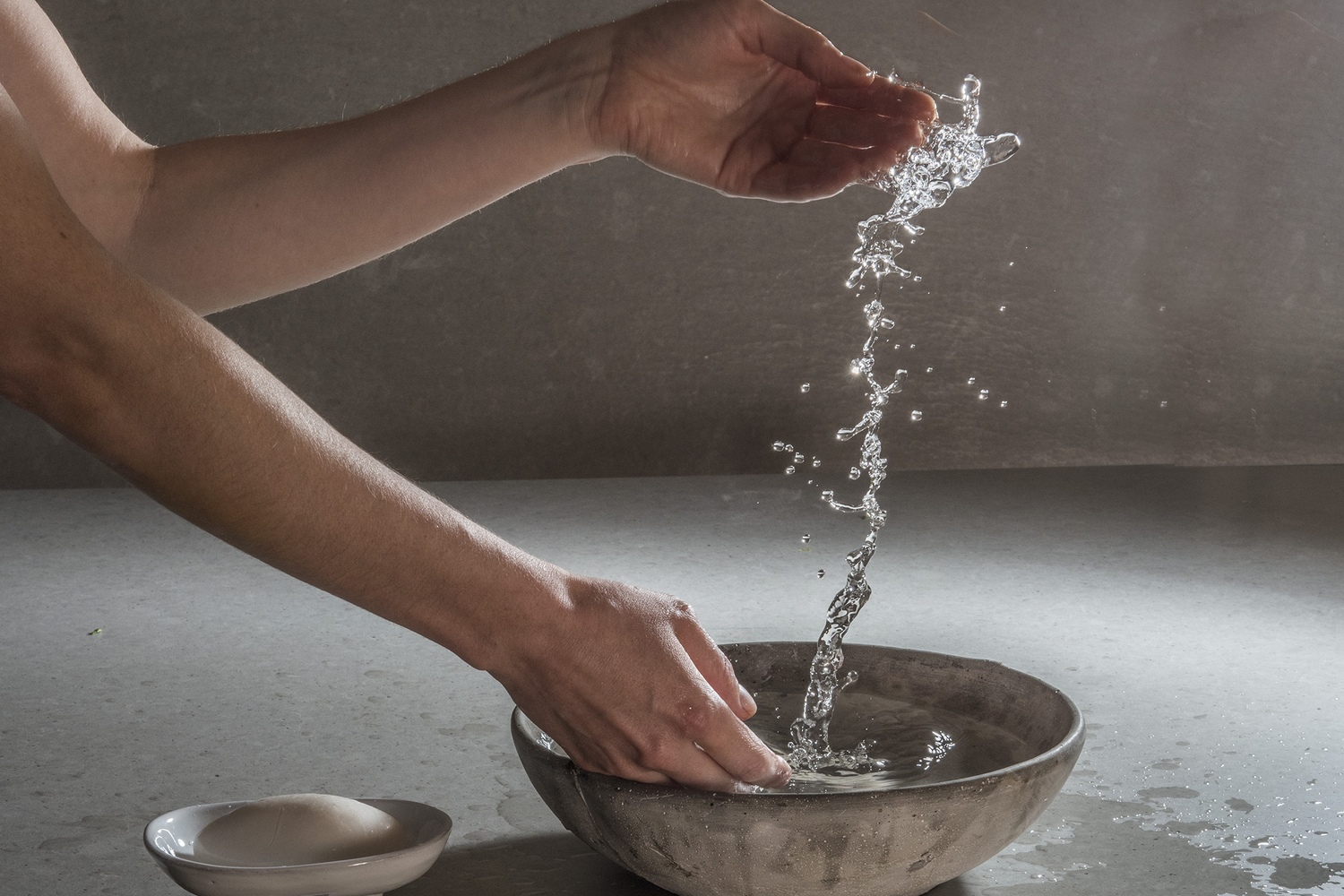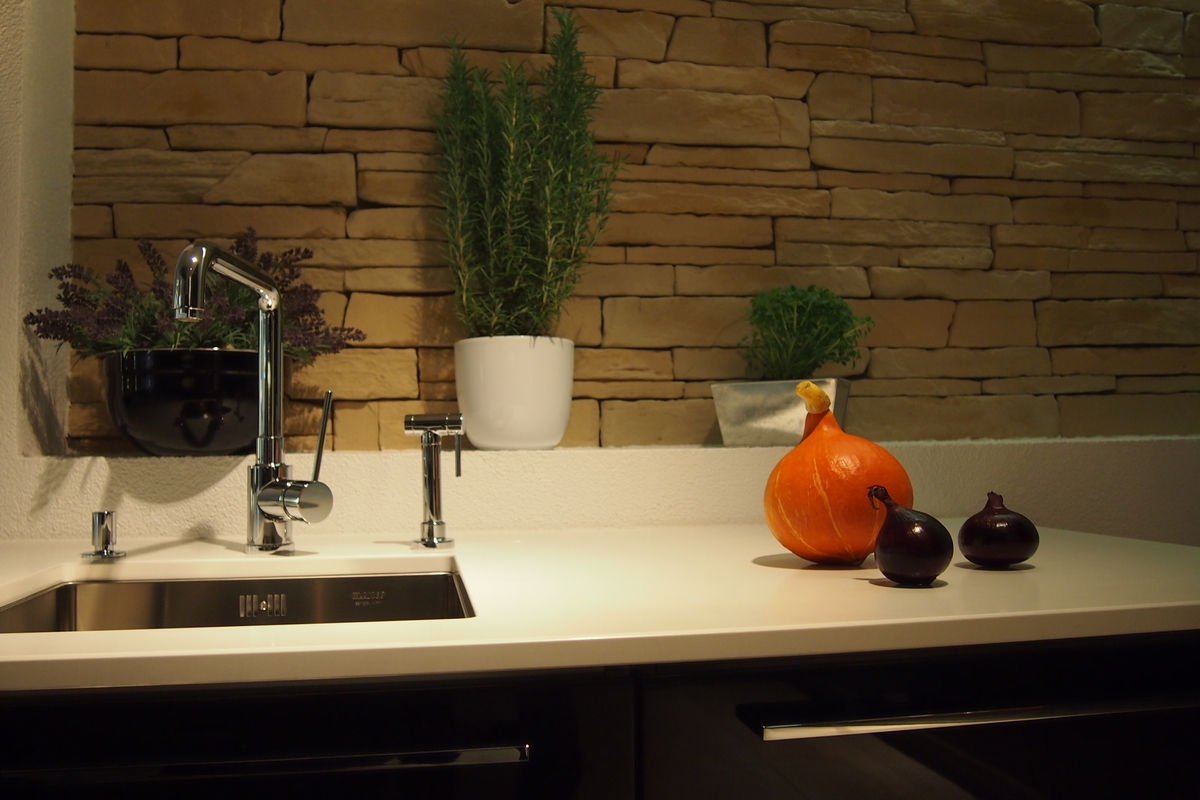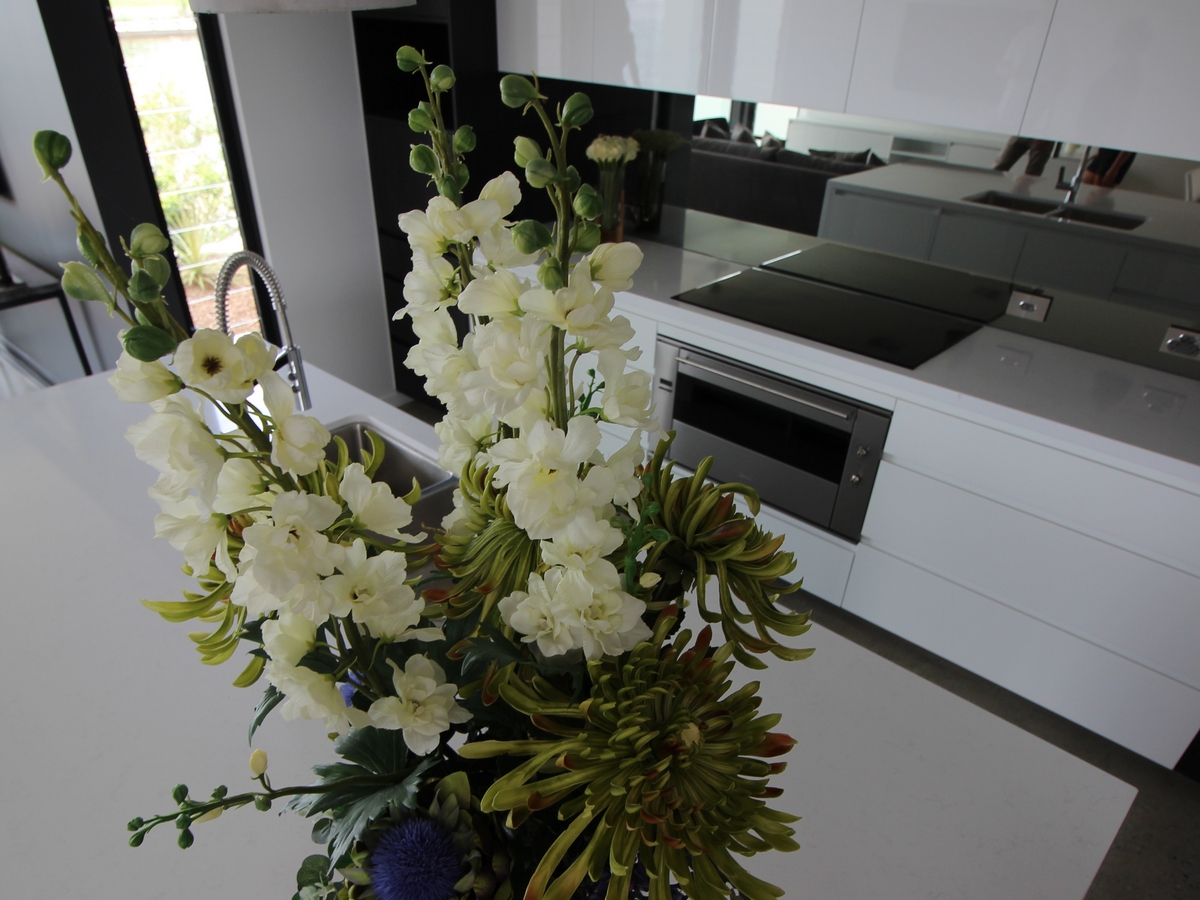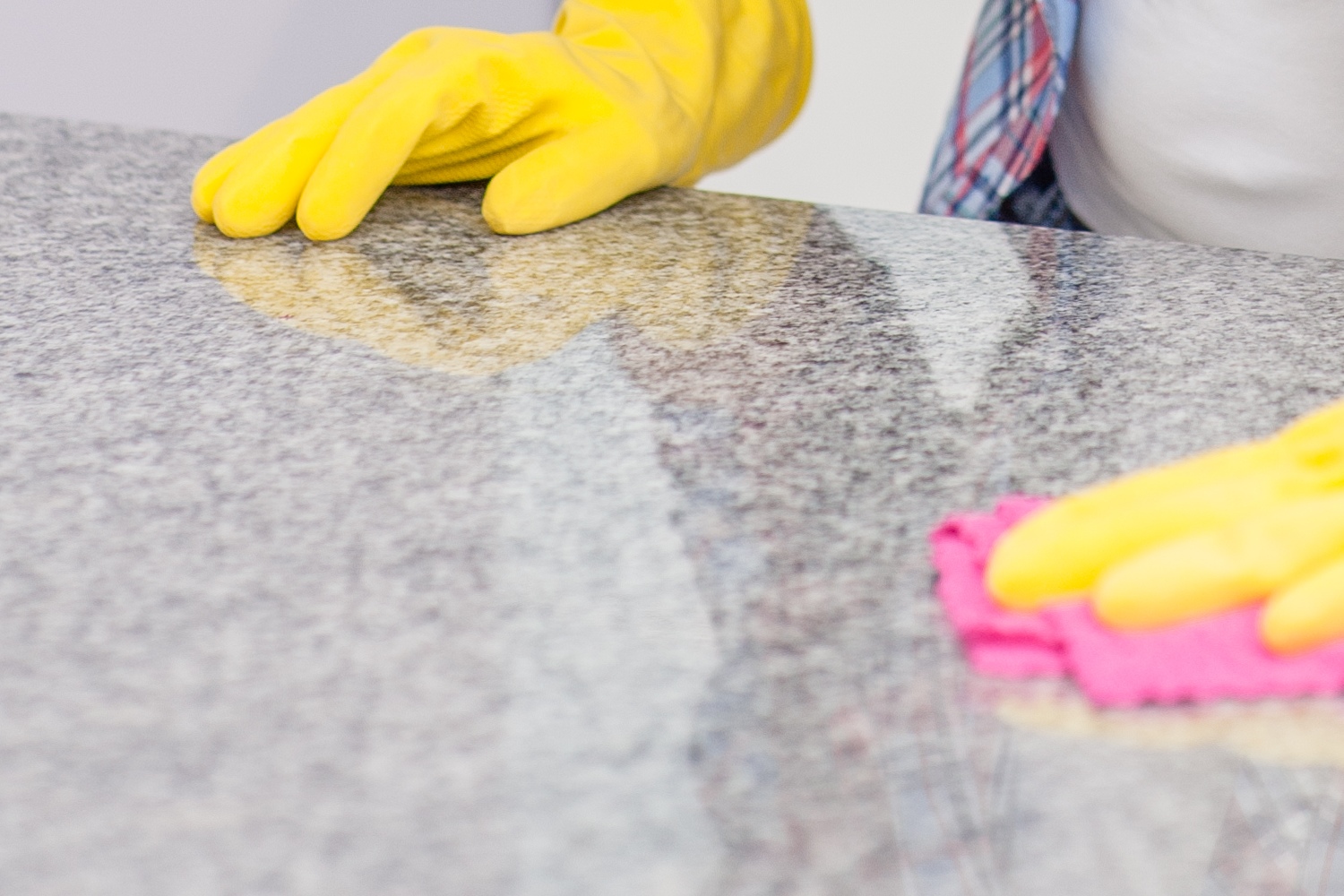
Tips to keep your worktop clean and beautiful
The stone work surfaces are both beautiful and durable and they do not require much care. However, if you want to be sure that the polished and reflective or silky smooth worktop remains good-looking for decades some general rules should be kept in mind.
Stone worktop’s maintenance and care products
The stone, especially quartz and granite, is almost ideal material for a kitchen or a bathroom worktop. The smoother and denser the stone, the more durable the surface is against dirt and stains. The density of the stone is indicated by its weight and water absorption coefficient – the heavier and near zero absorption materials are more resistant to dirt.
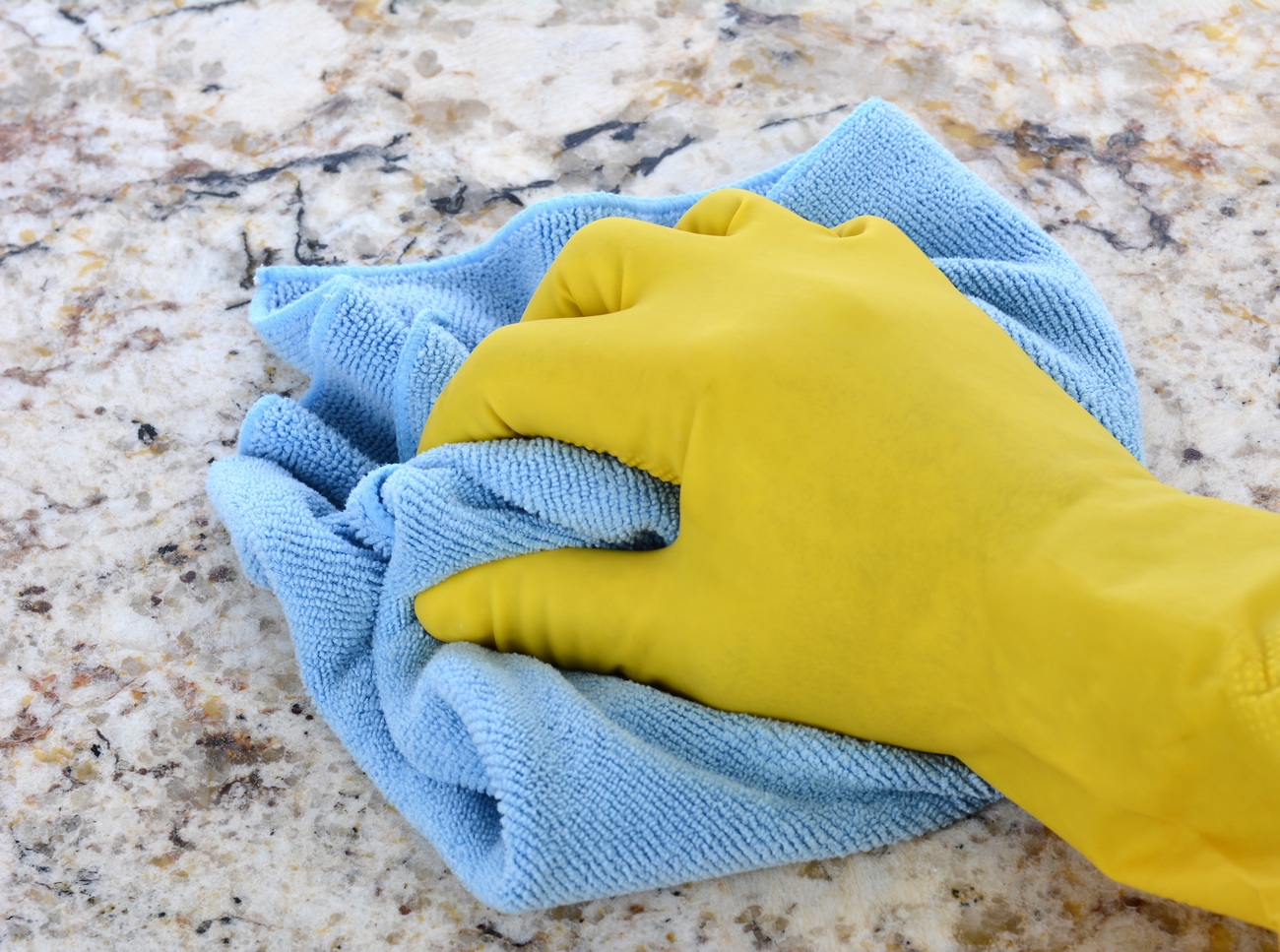
There are plenty of suggestions on the internet for removing persistent stains with for example turpentine or thinner, ammonia, toothpaste, mouthwash, vinegar etc. Sometimes using pure high proof alcohol or a mid 3-percent hydrogen peroxide (H2O2) solution meant for disinfection purposes can be useful. Hydrogen peroxide has antibacterial properties, is sold at pharmacies and (like alcohol) is used to disinfect wounds (avoid swallowing the substances or getting them into your eyes.) However, you should consider that even cleaning agents that seem very sensitive can destroy the shine of a polished stone surface and cause visible and irreparable damage to honed stone. We don’t recommend performing chemical experiments at home. If using the Granitop maintenance kit won’t give satisfactory results or a stain is already too old and absorbed into the stone, please ask our professionals for advice before turning to experimenting!
Cleaning and maintenance advices for marble, granite and quartz-stone worktop
Since stone is a natural material the color, hardness and other properties depend on its mineral and chemical composition. It is better to be careful when treating the stone surface with chemicals. Normal abrasives, corrosive, bleaching or acidic chemicals are not suitable with stone. Rather prefer water and baking soda, a neutral pH dishwasher gel or detergents specially made for stone cleaning.
If you prefer to buy care and cleaning products from elsewhere, be sure to check the certificate and ingredients!
The cleaning and maintenance products intended for the cleaning of kitchen worktops are subject to higher requirements. They must be safe for the user and approved for being in contact with food!
Granite characterization, cleaning and maintenance
Granite is one of the strongest natural stones due to the volcanic origin; it is also heat-resistant and therefore the impression may be that the stone would withstand everything. In fact, in order to maintain the beauty of granite the same requirements apply as to other materials – it would be better to avoid using the work surface as a cutting board or as a basis for stinging meat. Being careful with blades, dishes and kitchen utensils makes the polished work surface’s shine last longer!
All natural stone surfaces are usually treated by stone producers at the factory. For better stain resistance porous granite grades and marble should be additionally impregnated from time to time. When exactly your worktop needs another treatment depends on the usage intensity of your kitchen and the material. If you want to find out how well is your stone surface protected at the moment perform an easy test. Pour some drops of water on the surface – if it stays on the surface in shape of a pearl the surface is well protected. If the drops of water start to smear and absorb into the surface another layer of coating should be applied (of course after the worktop has been cleaned and dried).
Cleaning a marble worktop
Marble is one of the most sensitive of all stone worktop materials. When choosing a marble countertop it should be considered that the stone is sensitive to household chemicals and corrosive substances. Particular care should be taken with liquids such as coffee and tea, wine, juices and lemonades containing food colorings but also oils and acidic fruits. When exposed to these subtances for a short period of time nothing happens with marble. The dripped liquids should be wiped of as soon as possible with household paper, warm water or using a cloth.
Since marble is considered a softer material in the category of stones (as compared to quartz or granite) cutting boards should be used to avoid scratches that may occur on the surface. Caution should also be taken with kitchen utensils – shocks with a cast-iron or heavy cooking pot on the edge of the work surface can leave traces or even cause cracks in the material.
Long-lasting and durable composite stone
The quartz stone is the most durable compared to marble and granite. The surface of quartz stone is non-porous and this makes the material very hygienic and easy to maintain. Heat resistance in quartz is unfortunately not as good as for natural stone, therefore it is important to use a potholder and protect worktops from excessive heat in order to avoid the possibility of thermal shock!
Certainly, the general logic of cleaning of stone surfaces is also the same for quartz – it is easier to prevent stains than removing stains!
We have been experimenting with various materials, leaving corrosive juices, soft drinks and tomato paste to a worktop for a long time. It was nearly impossible to make visible stain onto a quartz surface but that does not mean you should do your own quartz testing lab. Of course, it’s also worth keeping your almost stain-proof quartz worktop clean!
Limestone
Limestone is one of the softest stones (approximately 3 – 3,5 on the Mohs scale) with a relatively high absorbance – 1,8% (as a comparison, granite falls at 0,2 – 0,5%)
A limestone worktop requires a bit more attention than, for example, a granite worktop. If you are looking for a maintenance free surface – one that is just as stylish as limestone – then Granitop’s selection includes quartz, which is reminiscent of limestone.
Terrazzo
The properties of the material largely depend on the quality and properties of the source material. If Terrazzo tile contains a large amount of, for example, Carrara marble or a similar ‘softer’ stone, its absorption coefficient and resistance to soiling are similar to natural stone. Regardless of the binders used in the manufacturing process (resin or cement), the treated surface tends to be moisture sensitive and delicate like marble.
Porcelain/Ceramic
Many homeowners have been surprised by the wide selection of shades and patterns that artificial stone worktops offer. Stone surfaces aren’t prone to getting scratches but the main advantage of ceramics is their longevity and resistance to staining. Porcelain has low porosity and won’t get stained or smudged by acidic foods and it isn’t afraid of big temperature differences either.
| Look for possibilities! |
How to restore polished surface gloss?
Strong wire brushes should be avoided on all stone surfaces. The best way to clean the surface is by sweeping it with a microfiber-cloth. But even the delicate cloth can scratch the polished surface if there’s a grain of sand on it! If this happens, use Granitop’s special stone polish Cream Stone (for natural stones) or Nano Cream (for quartz stones) that are specially designed for stone maintenance. The microparticles do not damage the surface of the stone but penetrate the stone pores where ordinary products may not reach.
However, if there is a stain…
It is not always possible to predict all accidents and it is especially difficult to keep perfect cleanliness in families with children. When some juice is not wiped off right after or there is a disturbing dry jam or ketchup stain you can try mixing the cleaning paste yourself with some handy ingredients.
First of all,the stain should be properly irrigated then mix a paste from warm water and baking soda and leave it on the stain. It would be good to cover the stain with a plastic wrap – so the potion stays moist for longer. If everything goes well the colorant making the stain will be absorbed and the surface will be clean again.
However if the worktop does not become completely clean and you seem to have tried almost everything, please contact our specialists! We can definitely recommend something!

